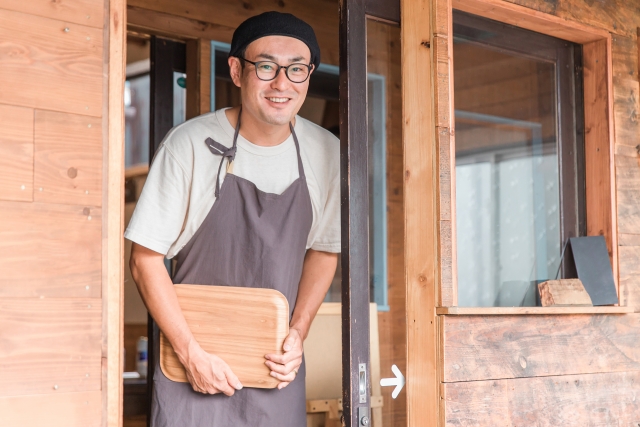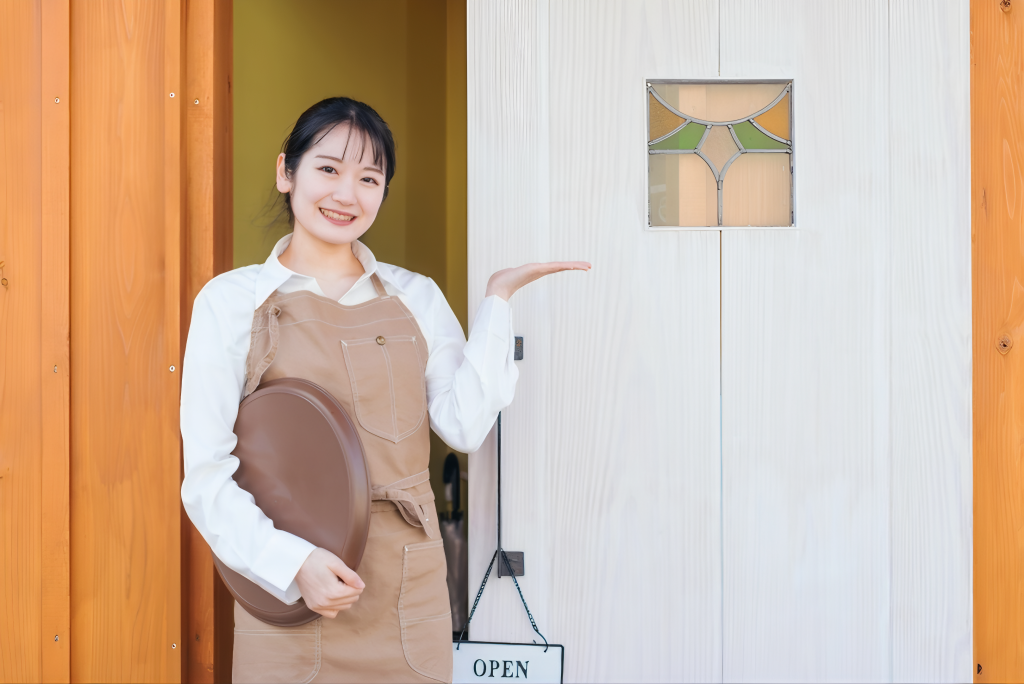If you’ve ever walked into a shop, restaurant, or even a convenience store in Japan, you’ve almost certainly been greeted with a loud, enthusiastic “Irasshaimase!” (いらっしゃいませ). Whether it’s a fancy department store or a tiny ramen shop, the staff will greet you with this phrase the moment you step inside.
But what does “irasshaimase” actually mean? Why is it so common? And how should you respond (if at all)?
In this guide, you’ll learn everything about “irasshaimase,” its meaning, usage, cultural background, and how to navigate these lively greetings when traveling in Japan.
Let’s get started!
What Does “Irasshaimase” Mean?

“Irasshaimase” is a polite, welcoming phrase that literally means “Welcome!” or “Come in, please!”
Breaking it down:
- Irassharu (いらっしゃる) is an honorific verb meaning “to come,” “to go,” or “to be present.”
- Mase (ませ) is a formal, polite ending.
Combined, “irasshaimase” becomes an honorific and respectful way to welcome customers or guests.
Simple meaning:
“Thank you for coming! Please come in!”
It’s not just a greeting — it’s part of Japan’s deeply rooted culture of hospitality, or omotenashi (おもてなし).
Why Do You Hear “Irasshaimase” Everywhere?
1. Showing Respect to Customers
Japanese service culture places a high value on treating customers with extreme respect and attentiveness. Saying “irasshaimase” acknowledges the customer’s presence and expresses appreciation even before any purchase is made.
In short:
The customer is treated as a valued guest.
2. Creating a Welcoming Atmosphere

A cheerful “irasshaimase” instantly sets a friendly tone. Even in busy environments, it makes customers feel noticed and welcomed.
In different places:
- In boutiques: A soft, elegant “irasshaimase.”
- In izakayas (Japanese pubs): A loud, energetic “IRASSHAIMASEEEE!”
- In convenience stores: A brisk, matter-of-fact “irasshaimase.”
3. Part of Team Spirit
In many stores, once one employee says “irasshaimase,” others echo it to show team unity and alertness to customers entering.
Fun fact: In some traditional markets, staff may even compete in how enthusiastically they can say “irasshaimase”!
When and How “Irasshaimase” is Used
1. Upon Customer Entry
The moment you walk into a store or restaurant, staff will usually say “irasshaimase.”
Tip: You might hear it even if they are busy helping other customers — it’s automatic and sincere.
2. Multiple Greetings
If you walk around a large department store, every new section you enter might trigger another “irasshaimase” from a different staff member.
Don’t be surprised! It’s just how Japanese service works.
3. Tone Depends on Setting
| Setting | Style of “Irasshaimase” |
|---|---|
| Upscale department store | Calm, elegant tone |
| Casual clothing store | Friendly and energetic |
| Fish market | Loud and hearty |
| Convenience store | Quick and polite |
How to Respond to “Irasshaimase”
1. No Response Required
As a customer, you don’t need to respond to “irasshaimase.” In fact, most Japanese customers don’t either. It’s simply an acknowledgment that you’ve entered.
Normal behavior:
- Smile softly
- Nod slightly if you want
- Continue browsing
2. Optional Responses
If you feel awkward ignoring it, you can:
- Nod and smile
- Say “konnichiwa” (こんにちは) — “Hello”
- Whisper a soft “arigatou” (ありがとう) — “Thank you”
Tip: A warm smile is universally appreciated!
3. If the Staff Directly Addresses You
Sometimes a staff member might follow up with questions like:
- “Nani ka osagashi desu ka?” (何かお探しですか?) — “Are you looking for something?”
In that case, just respond politely:
- “Daijoubu desu.” (大丈夫です) — “I’m fine, thanks.”
- “Miteiru dake desu.” (見ているだけです) — “Just looking.”
Related Phrases to “Irasshaimase”
1. Youkoso (ようこそ) — “Welcome”
“Youkoso” is another way to say “welcome,” but it’s typically used:
- For special events
- For welcoming guests to homes
- In formal speeches
Example:
- “Nihon e youkoso!” (Welcome to Japan!)
Note: In stores, “irasshaimase” is preferred.
2. Douzo (どうぞ) — “Please”
Staff may say “douzo” when:
- Inviting you to sit
- Offering you a sample
- Showing you a fitting room
Example:
- “Douzo o-kake kudasai.” (Please have a seat.)
3. Irasshai (いらっしゃい) — Casual Welcome
A casual version used at home when someone comes in.
Example:
- Mother says to child returning home: “Irasshai!”
Cultural Importance of “Irasshaimase”
1. Embodiment of Omotenashi
“Omotenashi” (おもてなし) means selfless hospitality, anticipating the guest’s needs without expecting anything in return. “Irasshaimase” is one way this spirit is demonstrated.
Through “irasshaimase,” stores show:
- Gratitude for customers choosing their store
- Readiness to serve
2. Reflection of Group Harmony
Japanese society values “wa” (和), or harmony. Greeting customers warmly maintains good social flow and positive energy in the store.
Fun fact: Even if the customer doesn’t acknowledge the greeting, it’s important to offer it anyway to keep the group’s atmosphere positive.
Different Variations of “Irasshaimase”
Depending on the store type, area, and individual staff style, you might hear variations:
- “Irasshai!” — Short, casual version (very common in small shops)
- “Iraira-irasshaimase!” — Super fast and cheerful (in energetic places like markets)
- “Douzo irasshaimase!” — Extra polite, inviting you in warmly
Some regional accents may also make “irasshaimase” sound a little different, especially in Kansai (Osaka, Kyoto) areas.
Quick Table: “Irasshaimase” at a Glance
| Category | Detail |
|---|---|
| Meaning | Welcome, come in |
| When to say | As customer enters |
| Who says it | Staff to customers |
| Customer response | Not required, optional smile or nod |
| Related words | Youkoso (formal welcome), Douzo (please) |
FAQ
Is “Irasshaimase” used outside stores?
Mainly no. It’s almost exclusively used in stores, restaurants, markets, and service establishments.
Should I say “Irasshaimase” back?
No. Customers usually don’t repeat it. A nod or smile is enough.
Is “Irasshaimase” formal?
Yes, it’s an honorific expression to show respect to customers.
Why do some stores shout it loudly?
To create a lively, energetic atmosphere and attract more customers.
What’s the difference between “Irasshaimase” and “Youkoso”?
“Irasshaimase” is for immediate, real-time customer greetings. “Youkoso” is for welcoming someone more formally or at special events.
Conclusion
“Irasshaimase” is much more than just a greeting — it’s a beautiful cultural practice rooted in Japanese values of respect, hospitality, and mindfulness. Every time you hear it upon entering a shop, it’s a small but meaningful way the staff acknowledges you and welcomes you into their space.
Next time you’re in Japan, instead of feeling pressured to respond, just enjoy the warm welcome. A smile or a nod is enough to participate in this special cultural ritual.
And now, when you hear “Irasshaimase!” you’ll know exactly what it means, and why it’s such an important part of daily life in Japan.
























